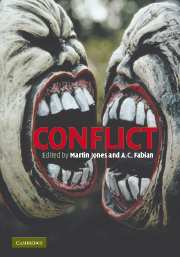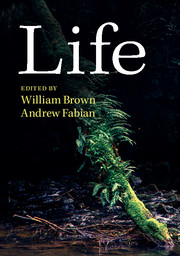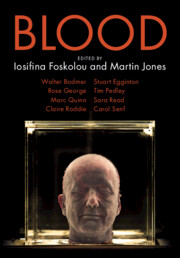Conflict
Conflict, sadly, is part of our everyday life; experienced at home, in the workplace, on our TV screens. But is it an inevitable part of the fabric of our existence? In this volume, eight experts examine conflict at many levels, from the workings of genes to the evolution of galaxies. Evolutionary biologist David Haig examines why we disagree with ourselves, and psychologist Simon Baron-Cohen asks whether differences between the average male and female mind must necessarily lead to misunderstanding. Anthropologist Richard Wrangham explores why chimpanzees and humans have evolved to kill, while archaeologist Barry Cunliffe examines the roots of warfare. Political scientist Lisa Anderson analyses conflict in the Middle East, and broadcaster Kate Adie reflects on television reporting of war. The book concludes with industrial economist William Brown's discussion of conflict in labour relations, and an exploration of the creative and destructive effects of cosmic violence by physicist P. C. W. Davies.
- Highly topical issues discussed by experts including many eminent scholars and broadcaster Kate Adie
- Clearly and accessibly written for a diverse audience
- Examines conflict from scientific, social, international and historical perspectives
Reviews & endorsements
"The essays in this book can stand alone and would provide stimulating subject matter for a seminar or as supplementary reading for a variety of classes."
Contemporary Psychology: APA Review of Books
Product details
January 2006Hardback
9780521839600
184 pages
253 × 181 × 18 mm
0.581kg
12 b/w illus. 2 tables
Out of stock in print form with no current plan to reprint
Table of Contents
- Introduction Martin Jones and A. C. Fabian
- 1. Intrapersonal conflict David Haig
- 2. Sex differences in mind Simon Baron-Cohen
- 3. Why apes and humans kill Richard Wrangham
- 4. The roots of warfare Barry Cunliffe
- 5. Conflict in the Middle East Lisa Anderson
- 6. Observing conflict Kate Adie
- 7. Conflict and labour William Brown
- 8. Life in a violent universe P. C. W. Davies.





